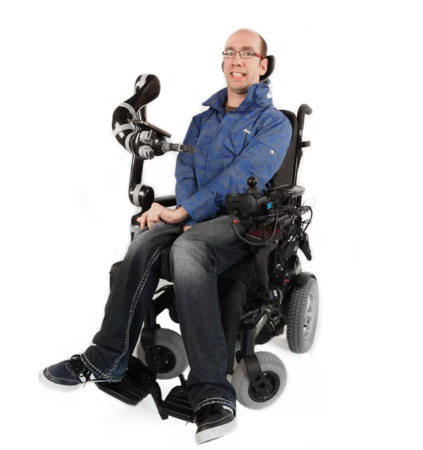FDA issues Class I update on robotic arms due to risk of fire
The U.S. Food and Drug Administration (FDA) has issued an urgent correction for the safety instructions on Kinova robotic arms due to a risk of electrical fire caused by damage to a protective coating. If the exposed metal of the robotic arm touches an electric wheelchair, it could damage the device and put the user at serious risk for burns or death.
While there have been no reported injuries, the FDA has labeled this recall a Class I, the most serious designation.
The Kinova Jaco Assistive Robotic Arm is used by people who have lost functionality of their arms, allowing the user to interact with objects. They are typically installed on one side of a motorized wheelchair, linked into the wheelchair's control stick. Despite the potential risks, the robots do not need to be removed from the market—people are free to continue using them, as long as they're inspected for safety.
What products are affected?

Jaco Assistive Robotic Arms with the following model numbers could potentially have life-threatening damage to their protective coating from normal use:
- PJ 0000 0001
- PJ 0000 0012
- PJ 0090 0001
- PJ 0090 0006
- KR MJ2 0001
The serial number is irrelevant, as all lots of the above models will need to be inspected by users.
Next steps
Users and their caretakers must inspect Jaco Arms for missing parts, scratches, chips, cracks, nicks, dings—any visible damage to the outer coating of the arm could be dangerous. Unplug the robotic arm and cease its use if any defect is identified.
If there is even minor visible damage, users should contact Kinova customer service immediately at 514-277-3777 ext. 2 or support@kinova.ca to have a protective pad installed.
The updated user guide can be found here. Customers may contact Kinova to receive a print copy.
The full FDA recall notice can be found here.

